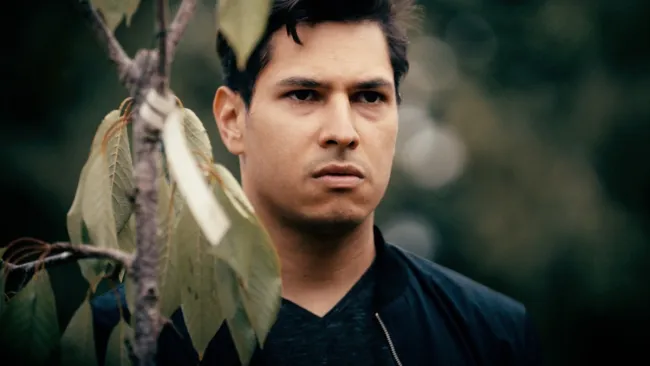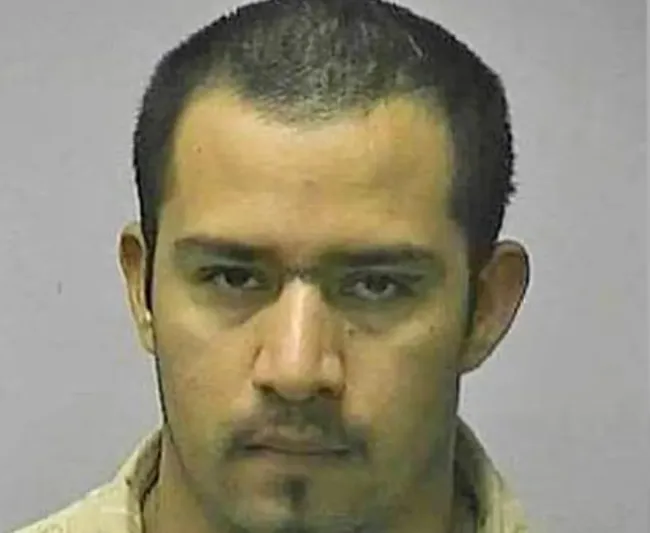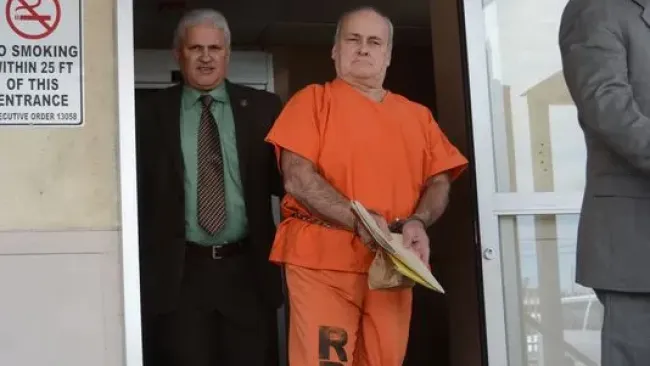Federal Death Sentences Commuted: The Controversial Cases of Thomas Steven Sanders, Jorge Avila-Torrez, Daryl Lawrence, and Alejandro Umana
In a move sparking heated debate, President Joe Biden commuted the death sentences of 37 federal inmates just before the holidays. Among those spared execution are Thomas Steven Sanders, Jorge Avila-Torrez, Daryl Lawrence, and Alejandro Umana—individuals whose crimes have left deep scars on society. But why did Biden choose to spare their lives, and what does this decision reveal about the state of justice in America? Let’s take a closer look at these men and the fallout from Biden’s controversial decision.
Thomas Steven Sanders: The Monster Who Targeted Innocents
Thomas Steven Sanders was convicted of kidnapping and murdering 12-year-old Lexis Roberts in 2010. His brutality didn’t end there—he also killed Lexis’s mother, Suellen Roberts, during a horrifying road trip near the Grand Canyon. Sanders’s actions were cold and calculated: he shot Lexis four times, slit her throat, and left her to die in a desolate area.
Biden’s decision to commute Sanders’s death sentence has ignited outrage. Many are asking: How can a man who committed such unspeakable acts be allowed to live? Sanders’s victims were innocent women and children, and their families are now grappling with the fact that the man responsible will never face the ultimate punishment.
Sanders’s commutation isn’t just about him—it’s a broader statement on the death penalty itself. Biden has long argued that capital punishment is flawed and disproportionately impacts marginalized communities. Yet, by sparing Sanders, Biden has effectively chosen to let a monster live out his days in prison—a far cry from the justice Lexis and Suellen deserved.

Jorge Avila-Torrez: The Killer Who Terrorized a Community
Jorge Avila-Torrez is a name that evokes terror for those who remember the brutal murders of 8-year-old Laura Hobbs and 9-year-old Krystal Tobias in 2005. Torrez, then a teenager, sexually assaulted and stabbed the girls to death in their own neighborhood. Years later, he murdered Navy Petty Officer Amanda Snell in her barracks, solidifying his status as a serial killer.
Torrez’s crimes are the stuff of nightmares. He targeted children and military personnel, leaving a trail of devastation in his wake. Yet, Biden’s commutation means Torrez will spend the rest of his life in prison—not on death row, where many believe he belongs.
For Amanda Snell’s mother, the decision is painful. “I’m not happy about it,” she said. “But at least he’ll never get out of prison.” Still, is life imprisonment truly enough for a man who destroyed so many lives?

Daryl Lawrence: The Cop Killer
Daryl Lawrence’s name is forever linked to the murder of Officer Bryan Hurst during a bank robbery in Columbus, Ohio, in 2005. Hurst, a dedicated officer and father, was working extra shifts to support his family when Lawrence shot him in cold blood.
Lawrence’s commutation has sparked outrage among law enforcement. Brian Steel, President of the Fraternal Order of Police Capital City Lodge #9, called the decision “an insult to Officer Bryan Hurst’s memory and to all law enforcement officers.”
Lawrence’s case is further complicated by his legal battles. He has spent years fighting his conviction and even sued the FBI for access to case materials under the Freedom of Information Act. Now, with his death sentence commuted, Lawrence will continue his legal fights from the safety of a prison cell—a far cry from the justice Hurst’s family and colleagues expected.

Alejandro Umana: The Drug Lord Who Wreaked Havoc
Alejandro Enrique Ramirez Umana, known as Alejandro Umana, is a name that strikes fear in those familiar with the brutal world of drug trafficking. Umana was convicted of orchestrating the murders of 11 people, including four children, as part of his reign of terror as a Philadelphia drug dealer.
Umana’s crimes weren’t just about drugs—they were about power and control. He ordered the murders of innocent people, leaving families devastated and communities terrorized. Yet, Biden’s commutation means Umana will now serve life without parole—a sentence that feels like a hollow victory for those who lost loved ones to his violence.
The Broader Debate: Justice or Mercy?
Biden’s decision to commute these death sentences has reignited a national conversation about the death penalty in America. On one side, there are those who argue that these men are among the worst killers in the world and deserve no mercy. On the other side, there are those who see Biden’s actions as a step toward a more humane and just system.
But the lingering question remains: Is sparing the lives of these men truly an act of justice, or is it a betrayal of the victims and their families?
Biden has made it clear that his decision was driven by his personal beliefs about the flaws of the death penalty. However, for the families of the victims, this decision may feel like a painful reminder that justice is not always served. They’ve waited years, even decades, for closure, only to see it slip away.
As we move forward, the question remains: What does justice look like in America? Is it the death penalty, a tool criticized for its flaws and biases? Or is it life imprisonment, a sentence that, while harsh, allows for the possibility of redemption?
Final Thoughts
The commutation of these death sentences is a bold and provocative move by President Biden. It challenges us to rethink our notions of justice and mercy and forces us to confront the realities of a system that is far from perfect.
But for the families of the victims, the decision may feel like a hollow victory. They’ve lost loved ones to some of the most heinous crimes imaginable and are now left to grapple with the reality that the men responsible will never face the ultimate punishment.
As we reflect on Biden’s decision, let’s not forget the victims and their families. Let’s remember the lives that were lost, the families that were shattered, and the communities forever changed.
Justice is a complex and nuanced concept, and Biden’s decision has reminded us of that in the most provocative way possible.
